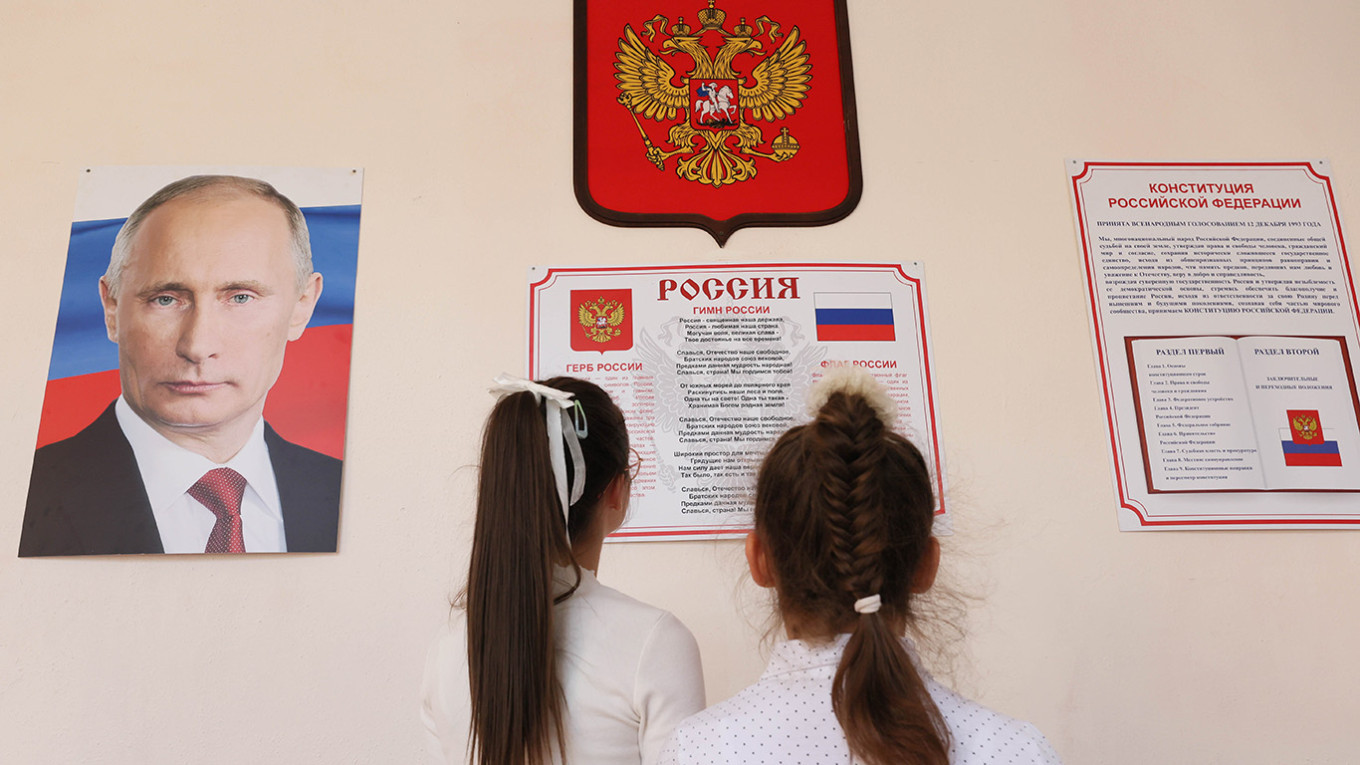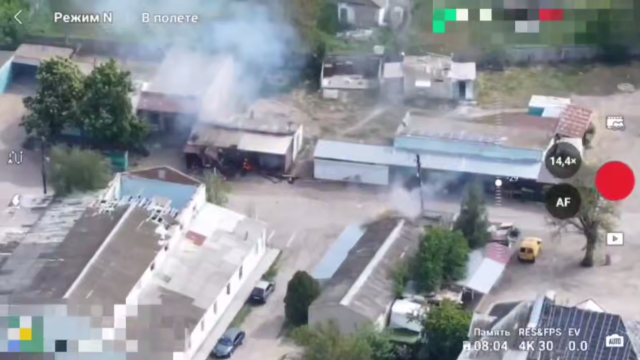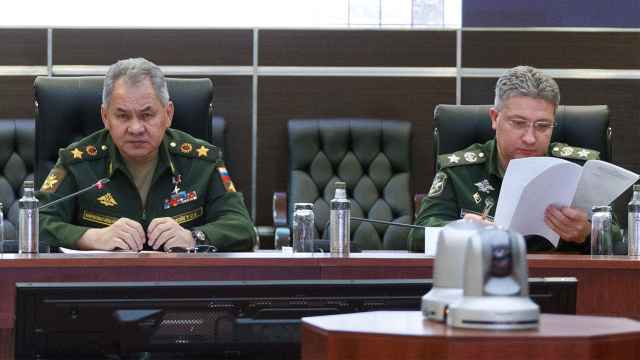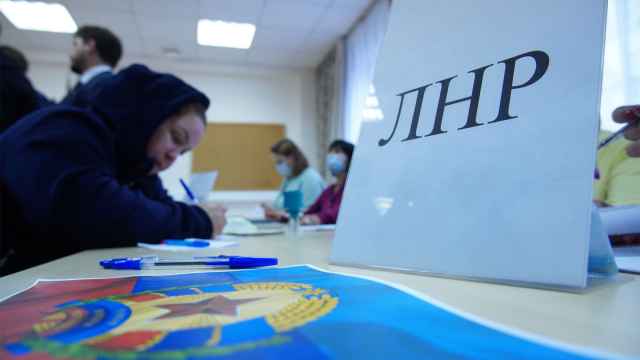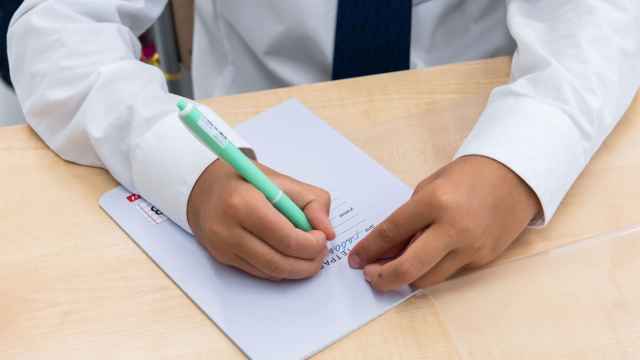Russia plans to remove Ukrainian language and literature education from the national school curriculum, including in occupied Ukrainian territories, the Kommersant business daily reported, citing a draft Education Ministry order.
The Education Ministry cited the “changed geopolitical situation” as the reason for its decision, according to Kommersant.
Ukrainian has until now been a mandatory offering for Ukrainian children at schools in the partially occupied Zaporizhzhia and Kherson regions of Ukraine.
In other Russian regions and occupied Ukrainian territories, Ukrainian language lessons have been made available upon request by parents. In the 2023-2024 school year, these lessons were requested in annexed Crimea, the partially occupied Donetsk and Luhansk regions and the republic of Bashkortostan.
Currently, students in regions where Ukrainian is taught study the language for a total of 736 hours from elementary through high school.
The draft order also excludes Ukrainian literature as a subject from first through ninth grades, where it had accounted for 282 hours of instruction. Ukrainian literature would remain as a subject only in grades 10 and 11.
“It’s hard to believe that the same people who are trying to eradicate the Ukrainian language in captured territories are demanding respect for the Russian language in territories which they are unable to capture,” independent political analyst Abbas Gallyamov wrote of the move on his Telegram channel.
Since launching its full-scale invasion of Ukraine in 2022, Russia has been accused of carrying out a mass campaign to erase Ukrainian identity and culture on the lands it has captured.
As recently as November 2024, President Vladimir Putin said that the Ukrainian language “has its own charm and beauty, as does all Ukrainian culture,” but accused Kyiv of allegedly forcing native Russian speakers to learn Ukrainian.
He urged authorities to refrain from forcibly imposing the Russian language on people in the occupied regions, saying that language policy should be "gentle and natural."
In the first year of the invasion, Putin cautioned officials against any attempts to ban the Ukrainian language, noting that some 3 million Ukrainians live in Russia.
“How could we deny them their language and culture? We have no such desires,” he said.
In the spring of 2025, the new literature textbook for Russian schools reportedly omitted references related to Ukraine, including information about the writer Nikolai Gogol’s Ukrainian origins.
A Message from The Moscow Times:
Dear readers,
We are facing unprecedented challenges. Russia's Prosecutor General's Office has designated The Moscow Times as an "undesirable" organization, criminalizing our work and putting our staff at risk of prosecution. This follows our earlier unjust labeling as a "foreign agent."
These actions are direct attempts to silence independent journalism in Russia. The authorities claim our work "discredits the decisions of the Russian leadership." We see things differently: we strive to provide accurate, unbiased reporting on Russia.
We, the journalists of The Moscow Times, refuse to be silenced. But to continue our work, we need your help.
Your support, no matter how small, makes a world of difference. If you can, please support us monthly starting from just $2. It's quick to set up, and every contribution makes a significant impact.
By supporting The Moscow Times, you're defending open, independent journalism in the face of repression. Thank you for standing with us.
Remind me later.


